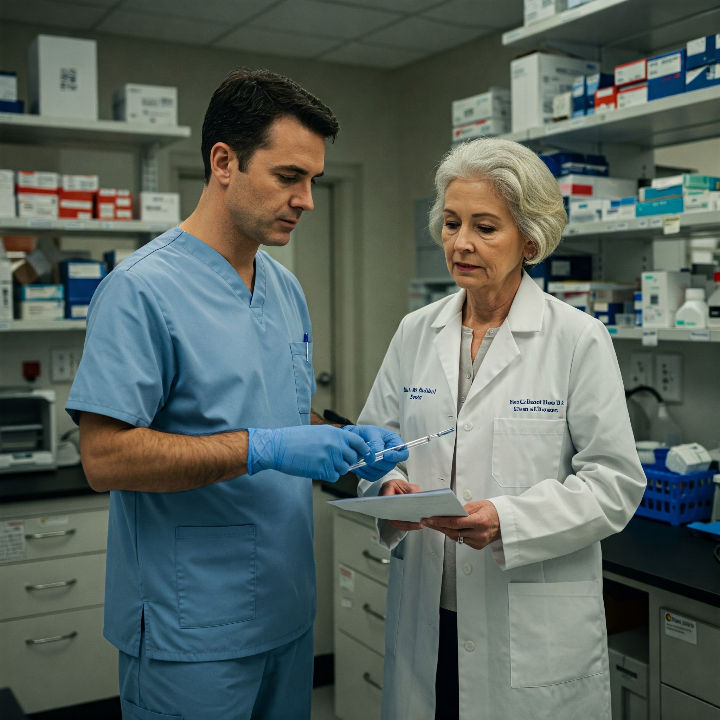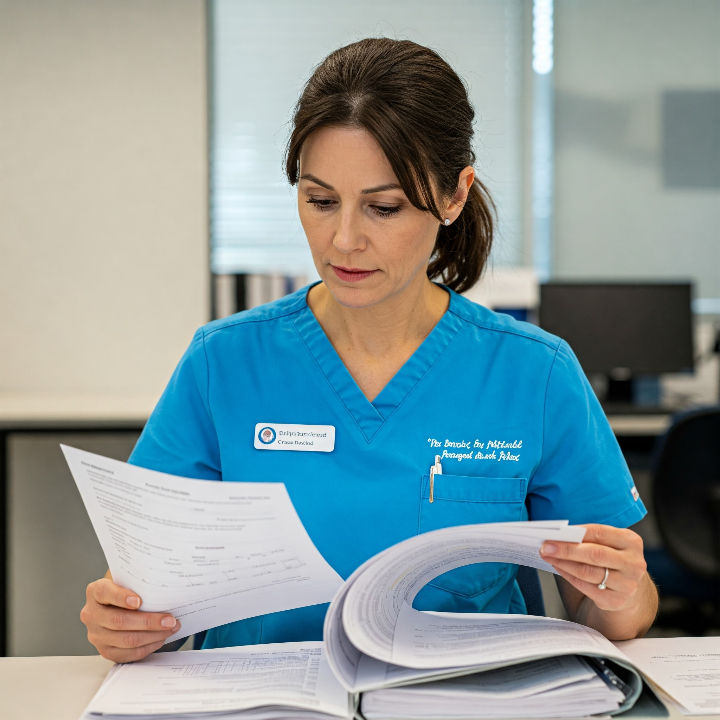Becoming a Clinical Research Coordinator in the USA
- Apr 11, 2025
- 4 min read
Updated: Jun 24, 2025
Clinical research is the engine driving medical innovation, bringing new treatments and therapies to patients. At the heart of this vital process is the Clinical Research Coordinator (CRC). If you're a healthcare worker in the U.S. looking for a dynamic, rewarding career path that leverages your skills and contributes significantly to patient care and scientific advancement, becoming a CRC might be your dream job.
But how do you navigate the path to this crucial role? This article outlines the key resources and steps to help you achieve your goal.
What Does a Clinical Research Coordinator Do?
CRCs are essential members of the clinical research team, working under the direction of a Principal Investigator (PI). They are involved in the day-to-day management and coordination of clinical trials at the site level. Responsibilities often include:
Screening and recruiting eligible study participants.
Managing patient visits and procedures according to the study protocol.
Collecting and maintaining accurate study data and regulatory documents.
Ensuring adherence to Good Clinical Practice (GCP) guidelines and relevant regulations (FDA, IRB).
Communicating with patients, investigators, sponsors, and Institutional Review Boards (IRBs).

Educational Foundations
While pathways can vary, most CRC positions require a foundation in healthcare or life sciences. Common backgrounds include:
Nursing: Registered Nurses (RNs) or Licensed Practical Nurses (LPNs) often transition well due to their clinical skills and patient interaction experience.
Life Sciences Degrees: Bachelor's degrees in biology, health sciences, public health, or related fields provide a strong scientific understanding.
Allied Health Professionals: Individuals from backgrounds like medical assisting, pharmacy technology, or phlebotomy can also build a path to becoming a CRC.
Some employers may prefer a Bachelor's degree, but relevant experience can sometimes substitute for formal education.
Gaining Essential Experience
Hands-on experience is invaluable. If you're not already in a research setting, consider these avenues:
Entry-Level Research Roles: Look for positions like Clinical Research Assistant, Clinical Trial Assistant (CTA), or Data Coordinator within hospitals, universities, or research centers. These roles provide exposure to the research environment.
Internships/Volunteering: Seek opportunities to intern or volunteer in clinical research departments to gain foundational knowledge and network.
Leverage Current Role: If working in a healthcare setting, express interest in research activities happening within your department or institution. Offer to assist with research-related tasks.
Developing Key Skills
Success as a CRC hinges on a specific skill set:
Attention to Detail: Meticulous record-keeping and adherence to protocols are paramount for data integrity and patient safety.
Communication: CRCs interact with diverse groups (patients, doctors, sponsors, monitors). Clear, professional communication is crucial.
Organization and Time Management: Juggling multiple tasks, deadlines, and protocols requires excellent organizational skills.
Critical Thinking and Problem Solving: Research rarely goes exactly as planned. CRCs need to identify issues, evaluate situations, and find compliant solutions.
Regulatory Knowledge: Understanding Good Clinical Practice (GCP), ICH guidelines, and relevant federal regulations is fundamental. Training in GCP (often available through organizations like the CITI Program) is typically required.
Professional Certifications: Demonstrating Expertise
While not always mandatory initially, professional certification significantly enhances your credibility and career prospects. The two main certifying bodies in the U.S. are:
Association of Clinical Research Professionals (ACRP): Offers the Certified Clinical Research Coordinator (CCRC®) credential, among others. ACRP certifications are accredited by the National Commission for Certifying Agencies (NCCA), recognized as a high standard in healthcare credentialing.
Society of Clinical Research Associates (SOCRA): Offers the Certified Clinical Research Professional (CCRP®) designation.
Both certifications require meeting specific educational and experiential criteria and passing a comprehensive exam. They demonstrate a standardized level of knowledge and commitment to ethical research conduct.

Resources for Finding Your CRC Job
Professional Organizations: ACRP and SOCRA are invaluable resources. They offer:
Job boards specific to clinical research.
Networking opportunities through conferences and local chapters.
Continuing education and training resources.
Healthcare System Career Sites: Hospitals and academic medical centers (like the Mayo Clinic) frequently post CRC openings on their own career pages.
General Job Boards: Websites like Indeed, LinkedIn, and Glassdoor list CRC positions, but be sure to use specific keywords.
Clinical Research Organizations (CROs) and Sponsors: Pharmaceutical companies and CROs hire CRCs, often posting on their company websites.
Networking: Attend industry events, connect with research professionals on LinkedIn, and leverage connections within your current healthcare network.
Career Growth and Advancement
Starting as a CRC opens doors to further career development within clinical research. Potential paths include:
Senior CRC or Lead CRC
Clinical Research Associate (CRA) - monitoring studies for sponsors/CROs
Clinical Trial Manager
Regulatory Affairs Specialist
Site Manager
🔖Conclusion
Embarking on a career as a Clinical Research Coordinator is more than just a job change; it's an opportunity to play a crucial role in the advancement of medicine. As we've outlined, the journey involves combining education with practical experience, mastering key organizational and regulatory skills, and utilizing resources like ACRP and SOCRA. If you are passionate about patient care and scientific progress, taking the steps outlined in this guide can position you for a fulfilling career. Start exploring entry-level opportunities, connect with professionals in the field, and chart your course towards becoming an indispensable part of the clinical research enterprise today.
Unlock new opportunities in the research field. Check out our free course here:







Comments